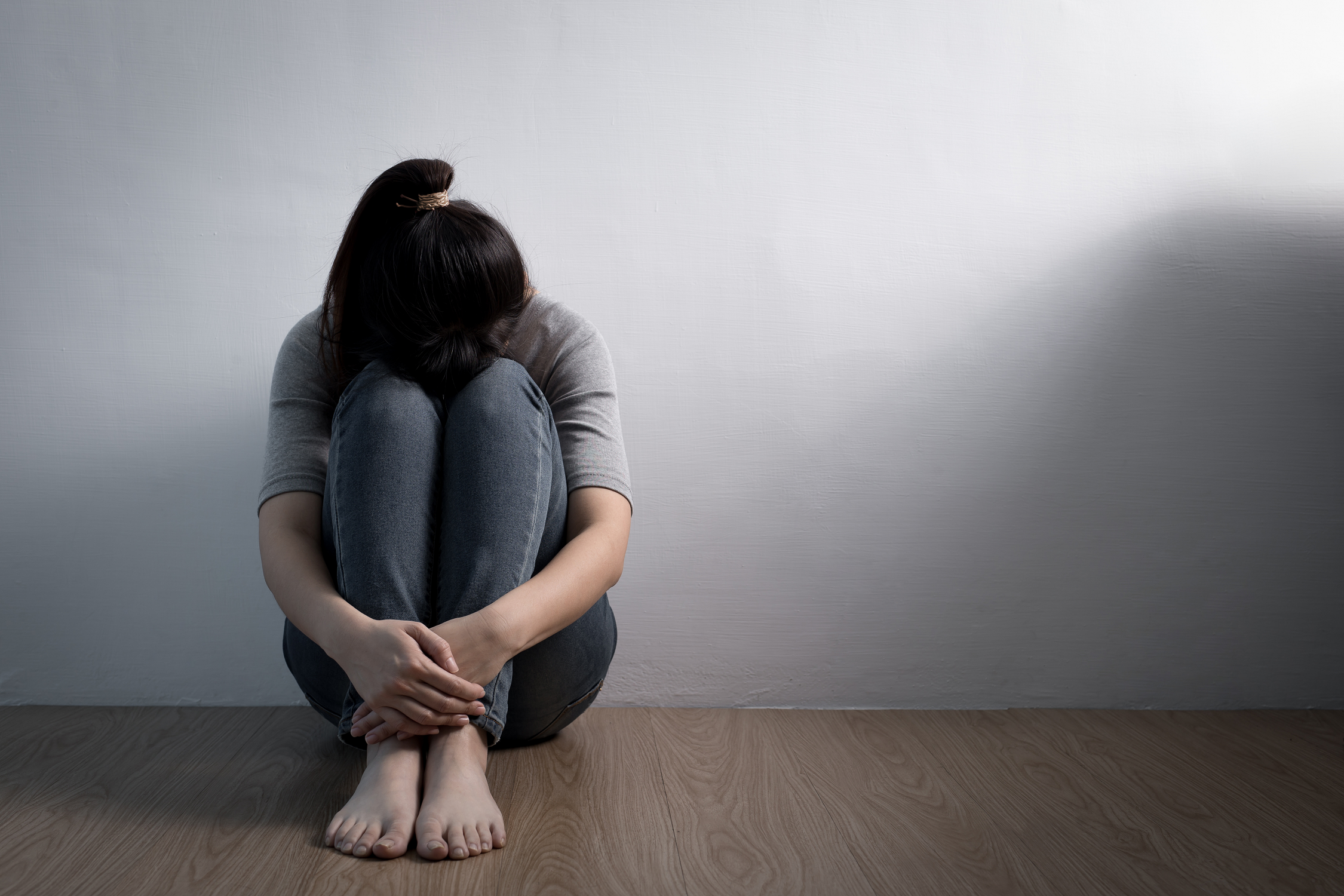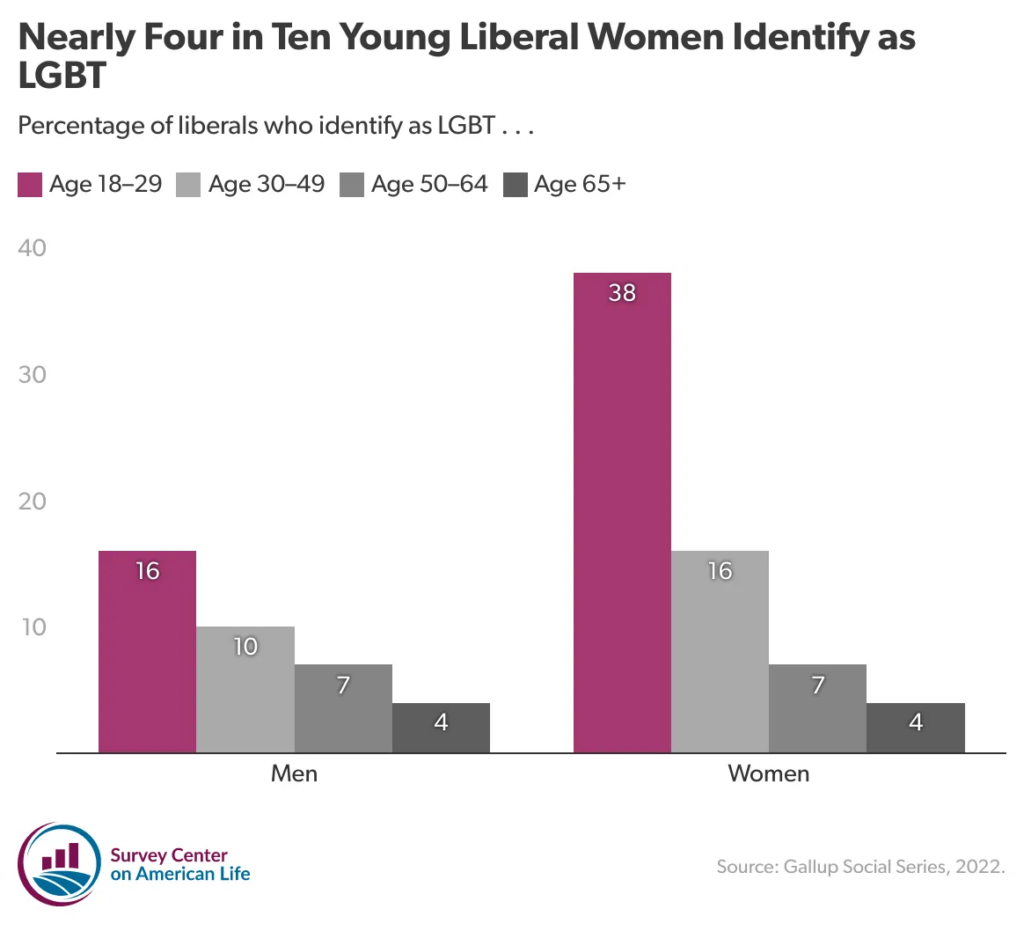Newsletter March 23, 2023
The Despair of Young Liberal Women

Something is happening to young people. A growing number of research studies suggest that young adults today face unprecedented degrees of mental distress. Most recently, the CDC reported that teenage girls are experiencing record levels of sadness. Left-leaning young women appear to be faring worst of all. What’s going on?
There has been a lot of good writing on this topic—including from David French on the role of parents, Matthew Yglesias on liberal catastrophizing, and Jonathan Haidt on social media. I’m not going to rehash those arguments. Rather, I’m going to consider two possible explanations that have gone underappreciated and unrecognized: the #MeToo movement and a rapid change in social identity.
Personal Unhappiness
Liberals consistently report lower levels of personal satisfaction than conservatives. This has been clear for quite some time, I might add. I wrote about this recently in this newsletter, but lots of other folks have explored this idea, including Thomas Edsall and my colleague Brad Wilcox, both in the New York Times. The deficit in life satisfaction among liberals has a lot to do with lifestyle decisions, as I wrote:
Compared to conservatives, liberals are less inclined to prioritize activities that are strongly associated with personal fulfillment.… Over the past 20 years, liberals have become less closely connected to religious organizations and churches. Only 35 percent of liberals report being a member of a church or place of worship. Marriage rates among liberals have also declined precipitously. Only 37 percent of liberals are currently married, compared to 56 percent of conservatives.
Young women are shedding their religious attachments at a rapid clip as well, and the marriage gap between liberals and conservatives is widest among younger women. Only 22 percent of young women are married.
A Transformative Experience
Still, the slow-moving shifts in marriage patterns and religious participation are inadequate explanations for the sudden rise in despair. Further, these trends can’t explain why young women appear most affected. Young liberal men face the same deficit when it comes to church and family, and they have weaker friendship networks than women as well.
One recent event was especially significant for young liberal women: #MeToo. Even as public interest in the #MeToo movement recedes, its influence remains considerable. In recent interviews with young women, we found that the #MeToo movement was incredibly salient—for many, it was a transformative experience that informed their views on relationships, sexism, and gender equality.
In a recent interview, one young woman had this to say about #MeToo:
I think I’m at an interesting age where the #MeToo movement was going on during some very formative years. Like I said, I’m only 21, so #MeToo was very high school for me, so I think luckily I had that all over social media to kind of shape the way I look at dating and men. And allow me to use other people’s experiences to form a sense of like putting a guard up almost.
As the #MeToo movement gained traction, many women began to reevaluate their understandings of the way American society treats them. Gallup polls reveal plummeting levels of satisfaction with the treatment of women in the last few years. In 2016, 61 percent of women said they were satisfied with the way women were treated in the US. The next time Gallup asked this question, in 2018, feelings of satisfaction had fallen dramatically. Today, only 44 percent of women report being very or somewhat satisfied with the treatment of women in American society.

These feelings are especially pronounced among progressive women. In a survey we released this year, we found that young liberal women expressed the greatest feelings of discontent with the treatment of women in the US. Less than one in three (32 percent) young liberal women said they were satisfied with how women fare in American society. In contrast, 44 percent of young liberal men, and 70 percent of young conservative women, report being satisfied with how women are treated in American society.
It’s not only that young women are uniquely dissatisfied with the current state of gender equality; these views are closely connected to how they think about their own lives. Pessimism about the treatment of women in society is closely connected to negative feelings about the direction of their own lives. Young liberal women who are unhappy about the way women are treated feel much more pessimistic. This connection is not evident among young conservative women or older women.
A Matter of Identity
The rise of social media transformed adolescence in ways that are unambiguously harmful. Yet, as pernicious as social media use has been, arguments that focus on smartphones miss something more fundamental. Our experiences, whether online or “IRL,” are filtered through our sense of self, our social identity. In any number of ways, young liberals today bear little demographic resemblance to their older ideological counterparts. They are far less religious and more ethnically and racially diverse. The majority of older liberals identify as white, non-Hispanic Christians, but vanishingly few young liberals do.
Most importantly, young liberal women today are much more likely to identify as LGBT. Analysis of 2022 Gallup surveys shows that nearly four in ten (38 percent) young liberal women identify as LGBT, roughly ten times the number among older liberals.

It’s difficult to pinpoint exactly the growth of LGBT identity given the paucity of survey data on the topic. (Most surveys only started asking these questions in the recent past.) However, Gallup found that over the last few years LGBT identity among Gen Z nearly doubled.
Any analysis focused on the uniquely poor mental health outcomes of young left-leaning women that ignores this fact is almost certainly missing a critical part of the story. A great deal of public health research has shown that LGBT youth struggle with depression, anxiety, suicidal ideation, and a range of mental health challenges at far higher rates than their straight or cisgender peers. One study found that nearly half of LGBTQ youth “seriously considered killing themselves.” When it comes to understanding the poor mental health outcomes of young liberal women, the rise of LGBT identity is a far more compelling explanation than, say, liberal proclivities for openness or feelings of uncertainty about the future.
None of this is simple. This data does not allow us to make claims about causality, nor does the evidence definitively point in a single direction. Nonetheless, a clearer understanding of all various factors that might contribute to the uniquely negative health outcomes experienced by young women will better enable us to help them. That should be the priority.







